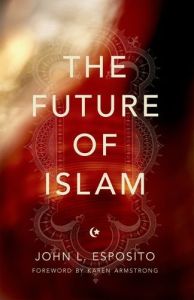Join getAbstract to access the summary!

Join getAbstract to access the summary!
John L. Esposito
The Future of Islam
Oxford UP, 2013
What's inside?
In this defense of Islam, John Esposito argues against letting the lunatic fringe tarnish a legitimate religion.
Recommendation
Georgetown University professor John Esposito – founding director of the Prince Alwaleed bin Talal Center for Muslim-Christian Understanding – makes a plea for understanding: Don’t let the lunatic fringe of Islam tarnish a legitimate religion. He acknowledges the violence committed by militant fundamental Islamists, but he mostly covers other facets of Islam, such as its theological links to Judaism and Christianity. At times, Esposito seems too intent on defense or insufficiently aware of how some of the practices he discusses can seem jarring to non-Muslims in the modern world. For instance, he’s pretty tone-deaf when he outlines a serious debate about whether a man can “lightly” beat a disobedient wife, or whether suicide bombings are morally justified. While his informative primer provides a rich overview, like most commentators of all faiths, he fails to explain why mainstream Islam seems powerless to influence the terrorists. With this caveat, getAbstract suggests Esposito’s study to students, policy makers and those seeking insight into one of the world’s most widespread religions.
Summary
About the Author
John L. Esposito, founding director of the Prince Alwaleed bin Talal Center for Muslim-Christian Understanding, teaches religion and international affairs at Georgetown University. He wrote Unholy War and other books.
















Comment on this summary